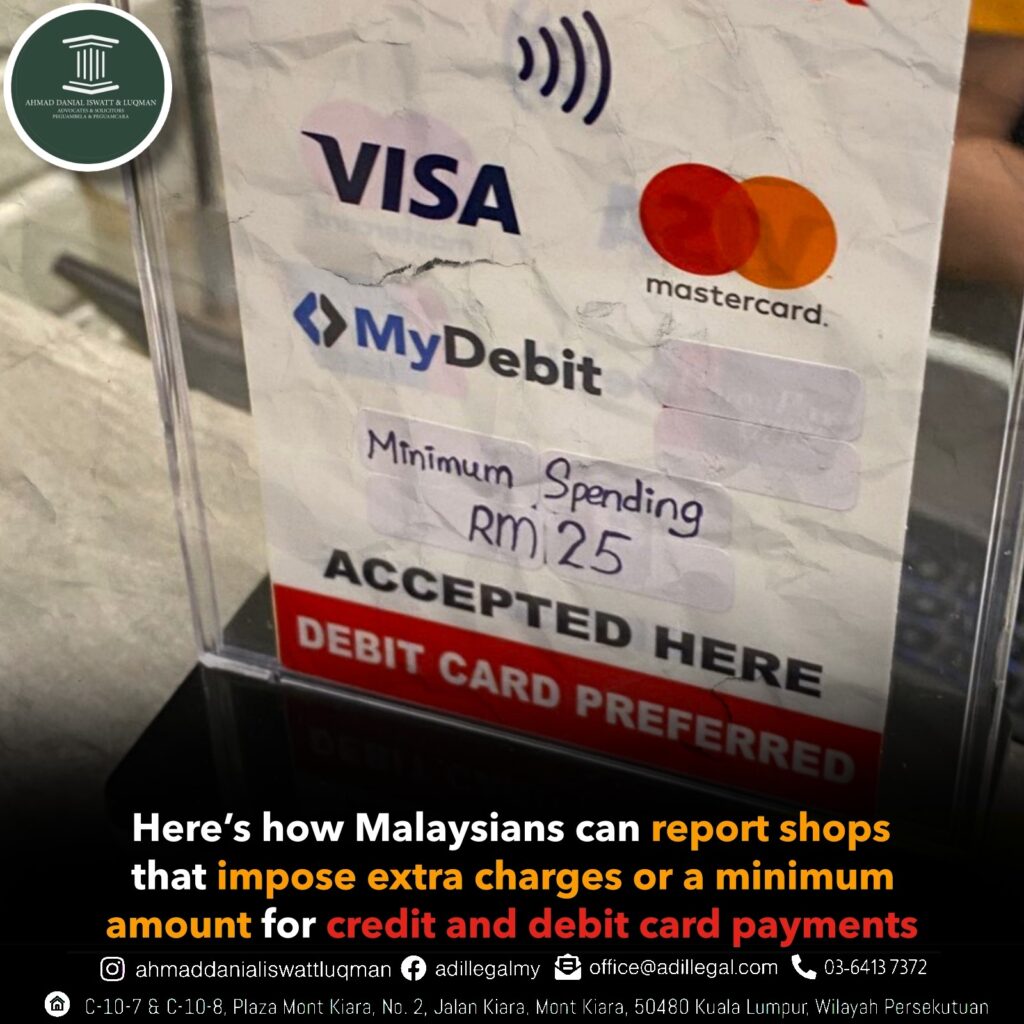
Here’s how Malaysians can report shops that impose extra charges or a minimum amount for credit and debit card payments
Over the past few years, especially during the pandemic, cashless transactions in Malaysia have increased dramatically. In fact, in a study by Visa last year as reported by Bernama, 74% of Malaysian consumers have gone cashless and 60% of consumers are using less frequently in our country.
These cashless payments include e-wallets and the focus of this article, credit and debit cards. In relation to that, have you ever encountered any stores or merchants that impose a surcharge or a set minimum purchase amount when you’re paying using a credit or debit card?
Well, this should not be the case and is an offence on the merchant’s part as our country actually prohibits such a practice!
So, what can you do if you’ve encountered a shop or merchant that imposes a minimum amount or surcharge for card payments? Well, read on as we dive into the relevant laws on the matter below.
Bank Negara Malaysia (BNM) prohibits the practice
Our country’s central bank, Bank Negara Malaysia (BNM) clarified in 2018 that retailers are not permitted to impose surcharges for payments using debit cards. A similar prohibition is applied for credit card payments under the rules of international card schemes such as Visa and Mastercard.
Under BNM’s Payment Card Reform Framework, the prohibition on surcharges is monitored and enforced by banks that provide e-payment facilities to merchants (acquiring banks). Accordingly, there is also no such thing as a minimum spending requirement for debit or credit cards.
So why do some retailers still impose a surcharge?
One of the reasons this practice is still ongoing despite BNM’s prohibition some 5 years ago is that retailers want to recover the cost incurred when accepting card payments. This is because retailers are typically charged a transaction fee, also known as the Merchant Discount Rate (MDR).
The MDR amount differs from bank to bank, but generally, the amount is higher for credit cards than for debit cards. To mitigate this, BNM has introduced measures such as the aforementioned Payment Card Reform Framework and the Interoperable Credit Transfer Framework.
Essentially, these measures lower the cost to retailers when accepting cost-effective electronic payment methods. This would in turn lessen the pressure on retailers to impose surcharges on customers.
What actions can Malaysian consumers take against these merchants?
Unfortunately, the only action you can take against this practice is to lodge a complaint with the respective bank or merchant acquirer (the institution that provides the payment terminals). Furthermore, if you’ve been charged any surcharges by the retailer, the complaint would not guarantee you a refund.
In order to lodge a report, do make sure you have the required information below:
- Full name and address of the merchant
- Name of the merchant acquirer
- Evidence that the merchant is imposing a surcharge or minimum amount. This can be in the form of a photo of the receipt
Besides that, you need to provide your personal details too when lodging the report.
As for where to lodge the report, you can do so by contacting the bank that issued your payment card or the merchant acquirer through their website, customer service hotline or at their nearest branch. Conversely, you can also lodge a report through BNM via the central bank’s BNMLINK website here.
By lodging a complaint, merchant acquirers would be compelled to take necessary actions by ensuring merchants cease imposing surcharges or minimum purchase amounts on payment card transactions. Furthermore, customers who do not wish to pay a surcharge or the minimum purchase amount imposed are advised to purchase goods and services from merchants who do not impose a surcharge or the minimum purchase amount.
Moving forward, let’s hope that BNM and the relevant authorities take stricter action against these practices and come up with a solution that would benefit both consumers and retailers. This is especially important as Malaysia strives towards the concepts of a digital economy and a cashless society.
For more insights into the Malaysian legal system such as this, do make sure to follow us on Facebook and Instagram or visit our official website. You can also read our articles on the popular Malaysian news aggregator app Newswav here.





